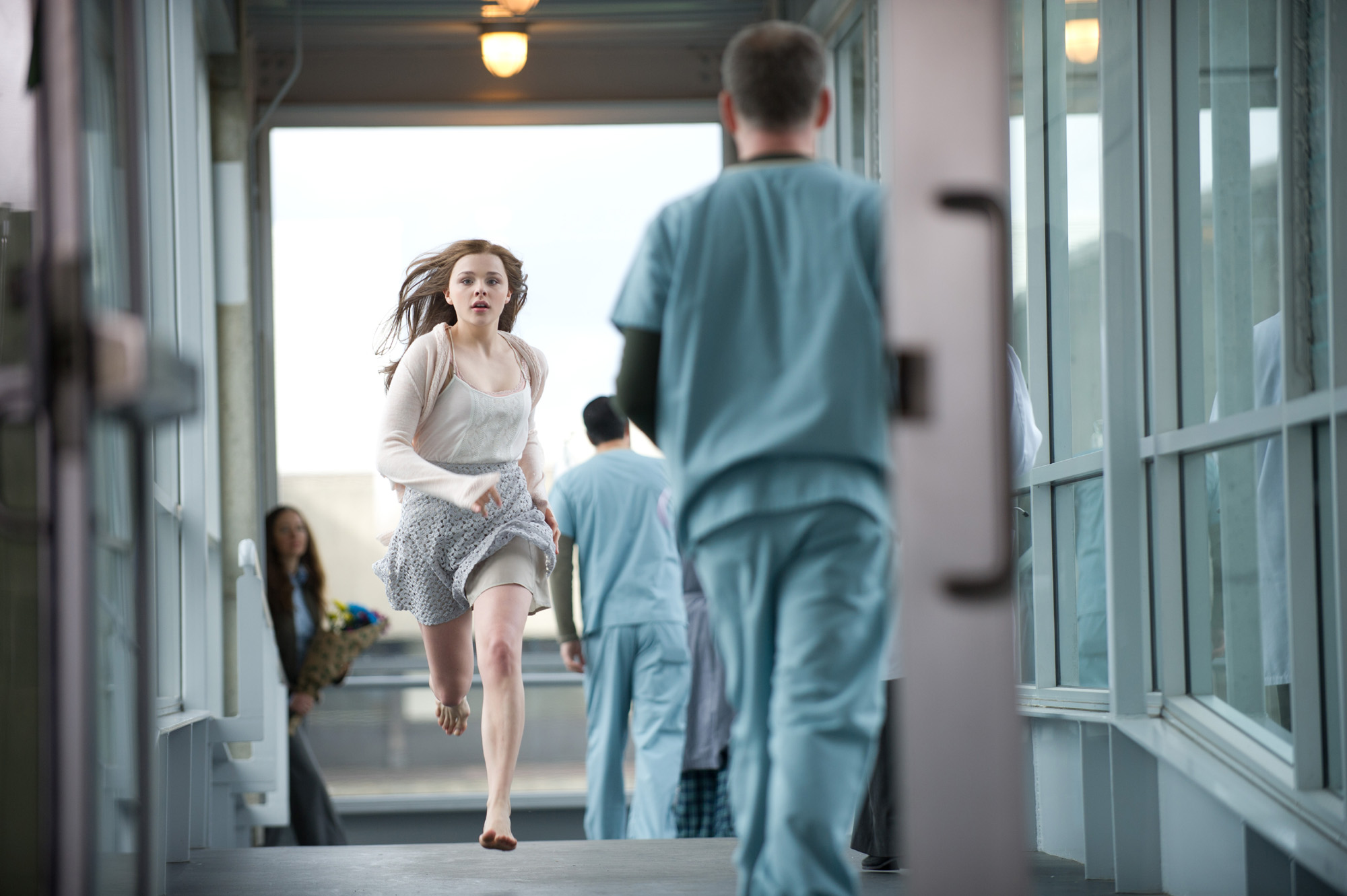Sonata no.3
by Gayle FormanGayle Forman’s best-selling novel If I Stay is now a major film starring Chloë Grace Moretz as Mia Hall, a talented cellist whose life hangs in the balance after what should have been a carefree family drive. We present an eerie extract from the opening chapter that sets the scene.
You wouldn’t expect the radio to work afterward. But it does.
The car is eviscerated. The impact of a four-ton pickup truck going sixty miles an hour plowing straight into the passenger side had the force of an atom bomb. It tore off the doors, sent the front-side passenger seat through the driver’s-side window. It flipped the chassis, bouncing it across the road and ripped the engine apart as if it were no stronger than a spider web. It tossed wheels and hubcaps deep into the forest. It ignited bits of the gas tank, so that now tiny flames lap at the wet road.
At first I figure everything is fine. For one, I can still hear the Beethoven.”
And there was so much noise. A symphony of grinding, a chorus of popping, an aria of exploding, and finally, the sad clapping of hard metal cutting into soft trees. Then it went quiet, except for this: Beethoven’s Cello Sonata no. 3, still playing. The car radio somehow still is attached to a battery and so Beethoven is broadcasting into the once-again tranquil February morning.
At first I figure everything is fine. For one, I can still hear the Beethoven. Then there’s the fact that I am standing here in a ditch on the side of the road. When I look down, the jean skirt, cardigan sweater, and the black boots I put on this morning all look the same as they did when we left the house.
I climb up the embankment to get a better look at the car. It isn’t even a car anymore. It’s a metal skeleton, without seats, without passengers. Which means the rest of my family must have been thrown from the car like me. I brush off my hands onto my skirt and walk into the road to find them.
I see Dad first. Even from several feet away, I can make out the protrusion of the pipe in his jacket pocket. “Dad,” I call, but as I walk toward him, the pavement grows slick and there are gray chunks of what looks like cauliflower. I know what I’m seeing right away but it somehow does not immediately connect back to my father. What springs into my mind are those news reports about tornadoes or fires, how they’ll ravage one house but leave the one next door intact. Pieces of my father’s brain are on the asphalt. But his pipe is in his left breast pocket.
 I find Mom next. There’s almost no blood on her, but her lips are already blue and the whites of her eyes are completely red, like a ghoul from a low-budget monster movie. She seems totally unreal. And it is the sight of her looking like some preposterous zombie that sends a hummingbird of panic ricocheting through me.
I find Mom next. There’s almost no blood on her, but her lips are already blue and the whites of her eyes are completely red, like a ghoul from a low-budget monster movie. She seems totally unreal. And it is the sight of her looking like some preposterous zombie that sends a hummingbird of panic ricocheting through me.
I need to find Teddy! Where is he? I spin around, suddenly frantic, like the time I lost him for ten minutes at the grocery store. I’d been convinced he’d been kidnapped. Of course, it had turned out that he’d wandered over to inspect the candy aisle. When I found him, I hadn’t been sure whether to hug him or yell at him.
I run back toward the ditch where I came from and I see a hand sticking out. “Teddy! I’m right here!” I call. “Reach up. I’ll pull you out.” But when I get closer, I see the metal glint of a silver bracelet with tiny cello and guitar charms. Adam gave it to me for my seventeenth birthday. It’s my bracelet. I was wearing it this morning. I look down at my wrist. I’m still wearing it now.
I edge closer and now I know that it’s not Teddy lying there. It’s me. The blood from my chest has seeped through my shirt, skirt and sweater, and is now pooling like paint drops on the virgin snow. One of my legs is askew, the skin and muscle peeled away so that I can see white streaks of bone. My eyes are closed, and my dark-brown hair is wet and rusty with blood.
I spin away. This isn’t right. This cannot be happening. We are a family, going on a drive. This isn’t real. I must have fallen asleep in the car. No! Stop. Please stop. Please wake up! I scream into the chilly air. It’s cold. My breath should smoke. It doesn’t. I stare down at my wrist, the one that looks fine, untouched by blood and gore, and I pinch as hard as I can.
I don’t feel a thing.
I have had nightmares before – falling nightmares, playing-a-cello-recital-without-knowing-the-music nightmares, break-up-with-Adam nightmares – but I have always been able to command myself to open my eyes, to lift my head from the pillow, to halt the horror movie playing behind my closed lids. I try again. Wake up! I scream. Wake up! Wakeupwakeupwakeup! But I can’t. I don’t.
Then I hear something. It’s the music. I can still hear the music. So I concentrate on that. I finger the notes of Beethoven’s Cello Sonata no. 3 with my hands, as I often do when I listen to pieces I am working on. Adam calls it “air cello”. He’s always asking me if one day we can play a duet, him on air guitar, me on air cello. “When we’re done, we can thrash our air instruments,” he jokes. “You know you want to.”
I play, just focusing on that, until the last bit of life in the car dies, and the music goes with it.
It isn’t long after that the sirens come.
© Gayle Forman 2009
Gayle Forman is an award-winning author and journalist whose articles have appeared in numerous publications, including Seventeen, Cosmopolitan and Elle. She lives in Brooklyn with her family. If I Stay is published by Definitions, an imprint of Random House Children’s Publishers, in a new tie-in edition featuring interviews with Chloë Grace Moretz and Jamie Blackley. Read more.
gayleforman.com
The film is released in the UK on Friday 29 August by Warner Bros.
Watch the trailer:


